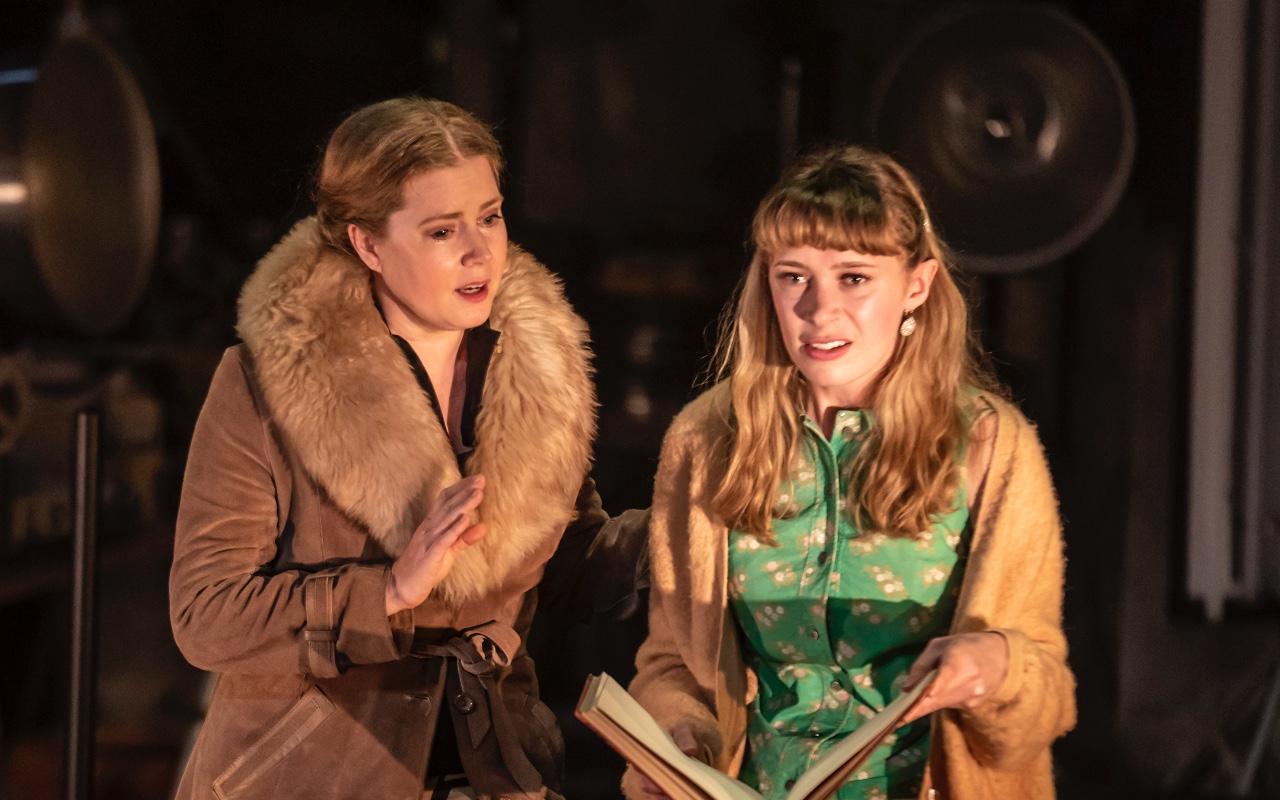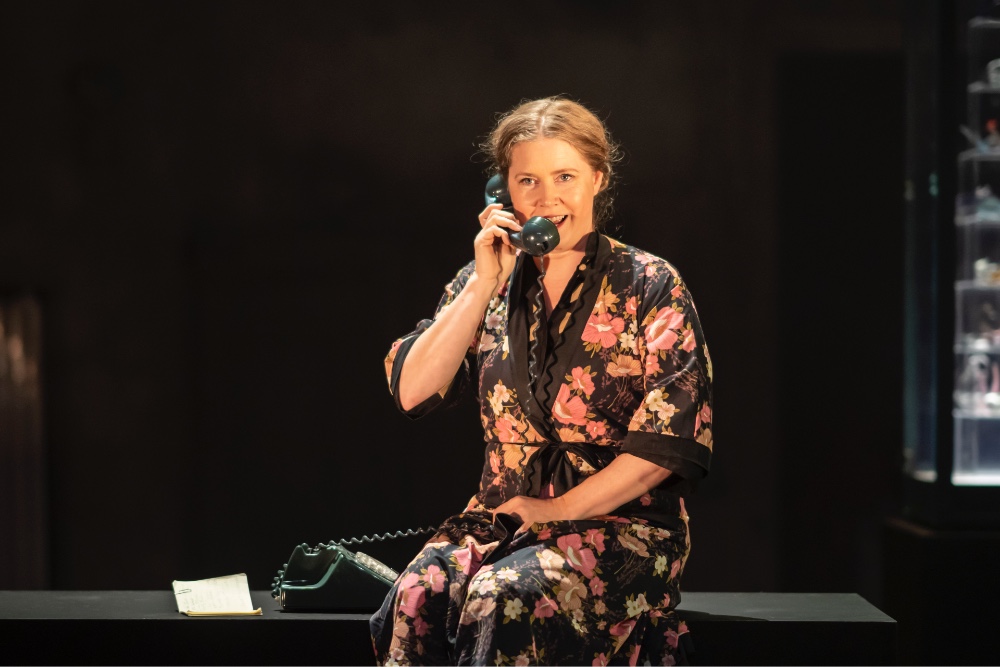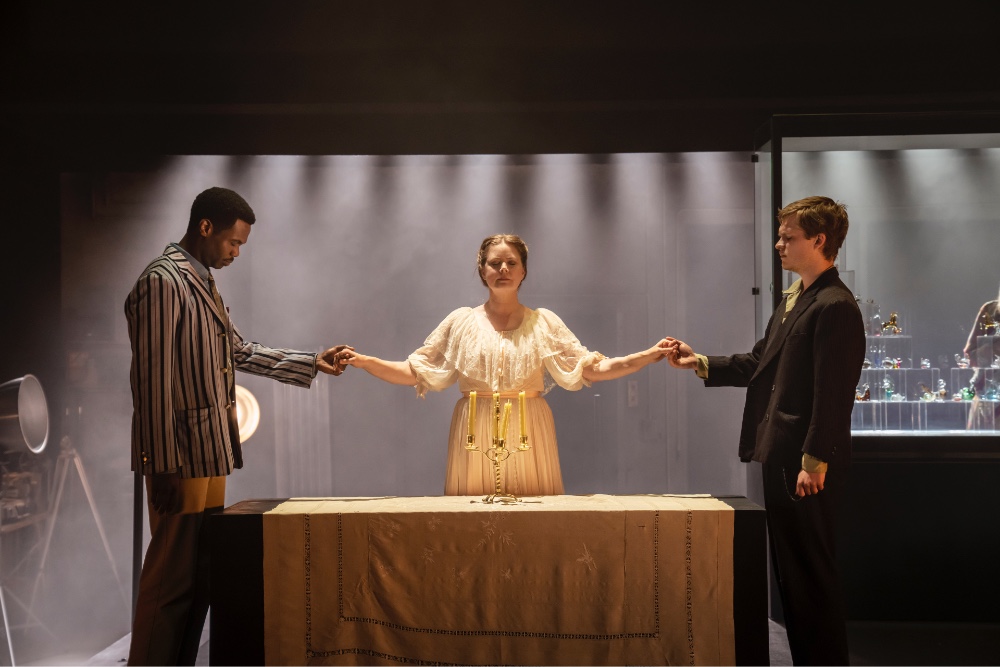The Glass Menagerie review: ‘Shattered expectations, but you can’t help but love Amy Adams’
"Whisper it: despite the A-list casting, The Glass Menagerie is a disappointment - and saying so feels like walking on broken glass" writes Attitude's Jamie Tabberer

Words: Jamie Tabberer; picture: Amy Adams and Lizzie Annis in The Glass Menagerie (Johan Persson)
“He’s selfish, like most gay men.” Or so I overheard a gay man tell another gay man as countless gay men, including Luke Evans, spilled out of Duke of York’s Theatre in London last night; all of us out in force to support Hollywood’s Amy Adams in her West End debut, in the Blanche DuBois-adjacent role of Amanda in Tennessee Williams’ The Glass Menagerie, no less.
The gentleman was talking about TGM’s Tom Wingfield, a character widely considered a stand-in for storied homosexual Williams. His breakout play is undoubtedly autobiographical; like Tom, Williams was once a frustrated artist working a dead-end job to support his overbearing mother and disabled sister. And yet, I received little to no indication that this brooding, browbeaten character should be interpreted as queer in this version.
That’s permissible, as there’s nothing overtly LGBTQ about the 1944-written, St Louis-based story. (Unsurprising, given the era; the single female characters, especially, are heartbreakingly confined by social pressures). But it’s worse off for it, as director Jeremy Herrin would benefit from injecting some subversive energy into this staid, straight production. Whisper it: despite the A-list casting, TGM is a disappointment – and saying so feels like walking on broken glass.

Perhaps Tom is intended as gay, but the cues went over my head, as I was too busy stitching together the poles-apart performances of puppyish Tom Glynn-Carney and snakish Paul Hilton. They play Tom at different stages of life, the former’s everyman simplicity jarring with the latter’s more charismatic, wily turn. They cancel each other out – even if, viewed separately, they’re interesting performances. (I loved the way they physically interact, as one might converse with their younger self when examining memories.)
In the end, it’s up to you to decide whether to sympathise with Tom, who, as the Wingfields’ sole earner, is contemplating following in his father’s footsteps and doing a bunk. The problem is, I came away feeling neutral. Or worse, confused, because the actors look and behave nothing alike.
I had the opposite problem with Adams as meddling matriarch Amanda and Laura Wingfield as her socially anxious daughter Lizzie: from where I sat, I could barely tell them apart, and was bugged throughout by the sense they could be sisters. I also had an issue with Adams’ enunciation: my hearing isn’t great, so I can’t say for sure whether she was speaking too quietly or too unclearly – how long is a piece of string? – but I can say, with confidence, that she spoke less loudly and less clearly than her castmates, even when their characters were speaking in something of a resting state. This surely wasn’t on purpose: Amanda, desperate to find a husband for her daughter, is the most hyperverbal and demonstrative of the lot.
 Adams with Victor Alli as The Gentleman Caller and Tom Glynn-Carney as young Tom
Adams with Victor Alli as The Gentleman Caller and Tom Glynn-Carney as young Tom
To that end, when the thin story finally switches gear, Adams speaks up and comes alive, performing vast quantities of dialogue impeccably and gorgeously, almost like song, finessing our faded Southern belle with dainty, doll-like body language. Upon receiving a gentleman caller for Laura, she really unravels, lending anodyne lines (“I’ve got to fix the dressing for the salmon!”) with manic, laugh-out-loud energy.
But should Adams be playing Amanda as lightly unhinged, or as a person unbearable to be around? In hostile denial of middle age and long-dead social status? I found myself craving the gritty despair of both Rachel Weisz and Gillian Anderson as Blanche in A Streetcar Named Desire. (At the Donmar Warehouse in 2009, and The Young Vic in 2014, respectively.) Adams can’t quite shake the inherent goodness she brings to all her best roles, whether conversing with aliens in Arrival or humanising a Disney princess in Enchanted.
The likability factor is more contextualised in the case of suave suitor Victor Alli – mercifully, the only character not on the verge of a nervous breakdown – and Annis as misunderstood shut-in Laura. Annis, who has cerebral palsy, makes her stage debut in the role, and is probably TGM‘s most valuable player, emanating a sense of wonderous but fragile grace. This is supposedly reflected in the glossy cabinet in which she keeps her treasured collection of glass animals: the only stand-out staging in this painfully stripped-back take.
2/5
The Glass Menagerie is playing at the Duke of York’s Theatre in London until 27 August.
